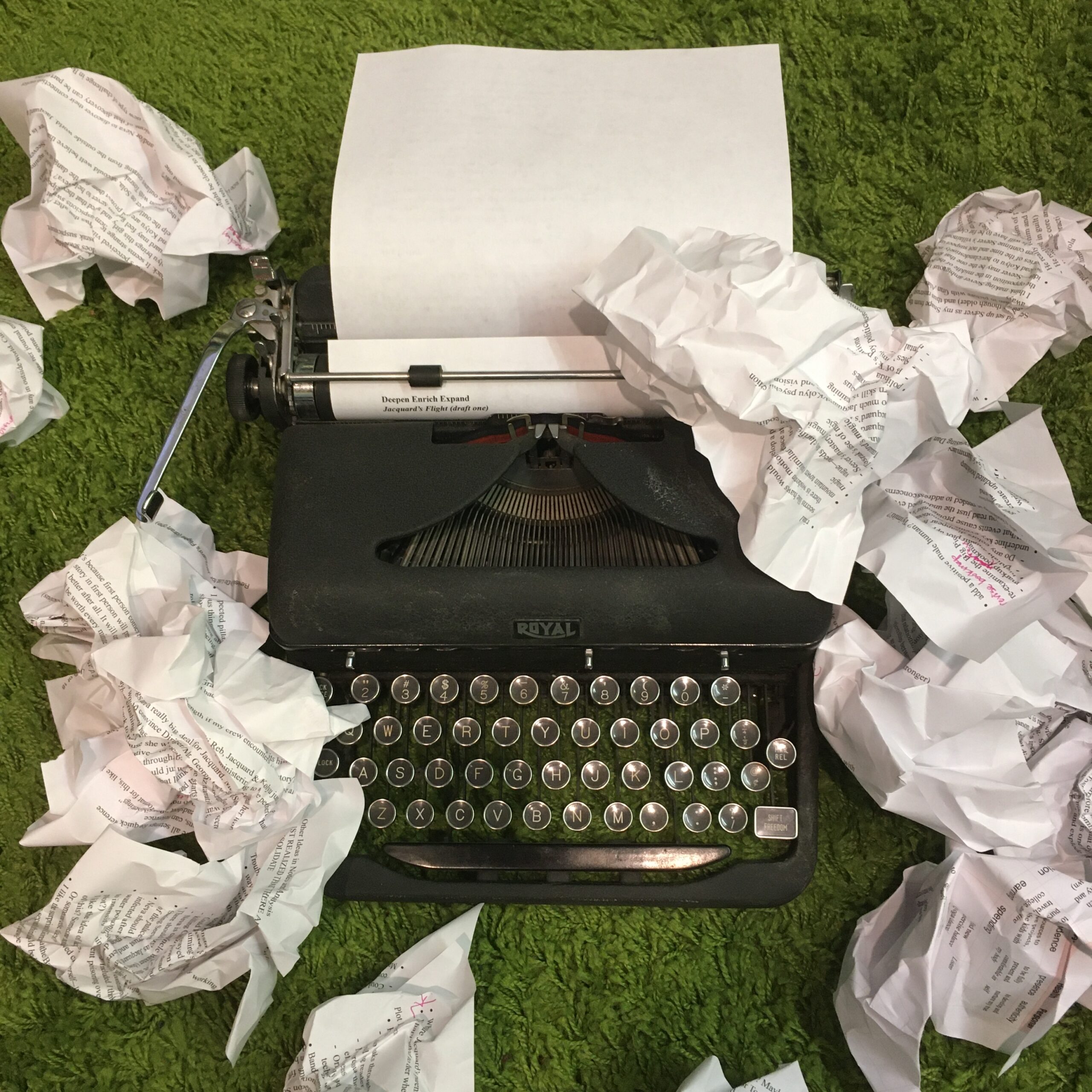If you’ve been following my blog for awhile, you’ll recognize one of my obsessions in this post: outlines. Specifically, whether or not outlining makes sense when writing a novel. I recently pulled out an old roll of bumwad, and it got me thinking about the creative process.
In architecture school they expected us to draw a lot. They would roll out our bumwad (what architects call their rolls of tracing paper) like it was pre-pandemic toilet paper, sketching and rolling, sketching and rolling. I never seemed to draw as prolifically as I was supposed to. I realize now that the point wasn’t how many drawings you could produce, it was the process. They were trying to break us of the desire to make pretty pictures. Drawing was not a product, it was a way of thinking through a problem.
When writing, you’ll hear a lot of people, from your high school English teacher to your favorite source for online writing advice, tell you that you should outline before you write. It will save you time, they say. It’s far more efficient to write an outline than to throw away hundreds of thousands of words, they say. Which totally makes sense, right?
The problem with this advice is that it does make sense. Nobody wants to waste time, effort or materials.
If my architecture professors had told me that bumwad was precious and I should figure out what I was going to draw before I drew it, the whole vibe of the creative process would have changed. Instead of letting ideas loose, I’d be trying for perfection out of the gate. Instead of using my materials to explore and innovate, I’d be worried about saving money and paper (which is more in line with my instincts). The idea of not wasting tools and materials would have impeded design.
Writers worry about wasting words—as in throwing away fifty thousand words or five chapters or the entire draft of a novel. This does sound like a waste. If outlining would have saved writing all those words, wouldn’t that be the way to go? Outlines use hardly any words at all.
But I want to ask you this: What are you really wasting when you throw away words? There are two fundamental answers to this question.
The Words Themselves
Deleting words that were hard to come up with in the first place feels like a betrayal. You had a vision when you wrote those words. You struggled to find the right way to say things, to understand what you really wanted to get across. How can you betray that effort by just tossing your hard-earned pages?
Well, here’s how. The words on the page are not your real creation—they are just a representation of what you’ve created. What you produced in writing those words is a clearer story, more fleshed out characters, a more compelling world and plot and character arc. Those things live in your mind now. And now that you know your story better, you can likely write even better words to convey your vision.
Like sketching on bumwad, writing words is a way of thinking through a problem.
The Time Spent Writing
Some people feel that throwing away drafted words is worse than tossing an outline because there are so many more words in a draft. The implication is that writing a three-thousand-word outline takes less time than writing a hundred-thousand-word draft of a novel. Fewer words equal less time, right?
Well, not necessarily. Whether the outline takes less time than the draft depends on many things. I once spent eight months trying to get my outline right. Yet the last time I wrote a full draft of my novel from scratch (107,000 words), it took me three months. (As a side note, that eight-month outline still wasn’t right.)
So don’t assume writing an outline saves time. Ask yourself: Is outlining productive for you, personally? Will an outline help at this particular point in your process? This is what matters. For some people, outlining is always more efficient. For others, it never is. For me, the answers to these questions change, depending on where I am in my process.
Architects draw to solve design problems. Writers write to work out story problems.
Whether your words take the form of outlines or summaries or charts or full-blown prose, the words themselves are not the point. The point is the story. What form of writing helps you find your story?


I love the comparisons and the summation!
Thanks :o) I can’t seem to stop thinking about outlines—even when I’m not actually outlining!